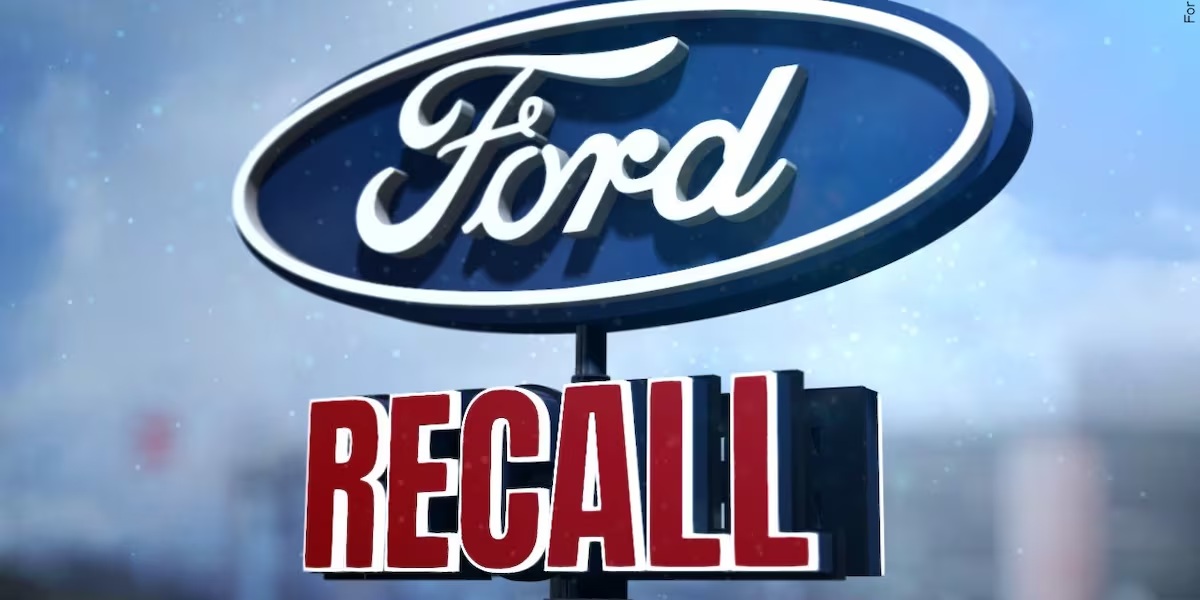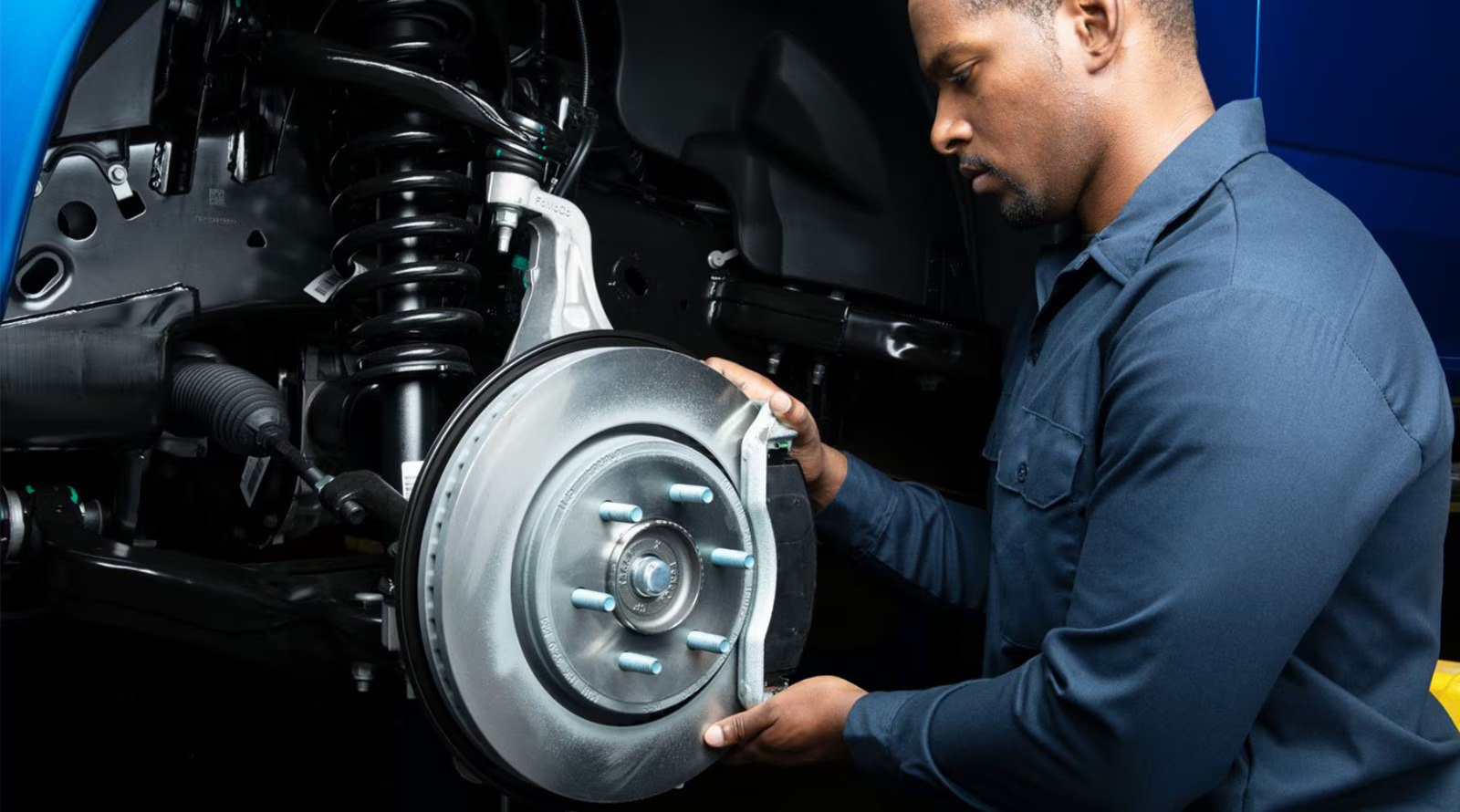Ford Motor Company, a pioneer in the automotive industry, has a long-standing commitment to vehicle safety and quality. As part of this commitment, the company conducts recalls when necessary to address potential safety issues or improve vehicle performance.

What is a Ford Recall?
A Ford recall is a proactive measure the company takes to address a potential safety concern or quality issue in one or more of its vehicle models. When Ford identifies a problem that could affect vehicle safety or compliance with federal motor vehicle safety standards, it initiates a recall process. This process involves notifying vehicle owners, providing a solution, and implementing the fix at no cost to the owner.
Recalls are a standard practice in the automotive industry and demonstrate a manufacturer’s commitment to customer safety and product quality. They are essential to their continuous improvement, ensuring their vehicles meet the highest safety and performance standards.
The Recall Process
When Ford initiates a recall, it follows a structured process to ensure that all affected vehicles are addressed efficiently and effectively. The typical steps in a Ford recall process include:
- Issue Identification: The engineering team or the National Highway Traffic Safety Administration (NHTSA) identifies a potential safety issue or non-compliance with safety standards.
- Investigation: Ford conducts a thorough investigation to determine the root cause of the issue and its potential impact on vehicle safety.
- Recall Decision: Ford decides whether a recall is necessary based on the results of the investigation. If so, they develop a plan to address the issue.
- NHTSA Notification: Ford notifies the NHTSA, providing details about the affected vehicles, the nature of the problem, and the proposed solution.
- Owner Notification: Ford sends notices to registered owners of affected vehicles, explaining the issue and providing instructions on addressing it.
- Remedy Implementation: Ford dealerships implement the necessary repairs or replacements free of charge to vehicle owners.
- Follow-up: Ford monitors the completion rate and may send additional reminders to owners who haven’t performed the recall work.
Types of Recalls
Ford recalls can address a wide range of issues, from minor software updates to more significant mechanical problems. Some common types include:
- Safety-Related: These address issues that could potentially impact vehicle safety, such as problems with airbags, brakes, or steering systems.
- Compliance: These ensure that vehicles meet all applicable federal safety standards.
- Emissions-Related: These address issues related to a vehicle’s emissions control systems to ensure compliance with environmental regulations.
- Customer Satisfaction Programs: These programs address non-safety-related issues that could affect customer satisfaction.
Recent Ford Recalls
Like all major automakers, Ford issues recalls as part of its commitment to vehicle safety and quality. In 2024, Ford initiated several recalls to address various issues across its vehicle lineup. Some notable recalls included:
- Air Bag Warning Label: Certain 2020-2025 Explorer, Lincoln Aviator, 2020-2024 Escape, Lincoln Corsair, 2018-2024 F-150 trucks, Expedition, and Lincoln Navigator SUVs due to a potentially missing airbag warning label on the dashboard.
- Child Safety Lock: Ford recalled 2023–2024 Bronco 4-door vehicles to fix an issue with the left-side rear door’s child safety lock, which could potentially allow the door to open from the inside even when the child safety feature was engaged.
- Rearview Camera: Ford recalled certain 2022–2024 Maverick vehicles with a Connected Touch Radio because the rearview camera image might freeze when the vehicle is in reverse.
- Front Upper Control Arm: Ford recalled 2023–2024 F-150 Lightning BEV vehicles to fix a potential issue with the front upper control arm ball joint nut, which may not have been tightened properly.
Benefits of Ford Recalls
People may sometimes perceive recalls negatively, but they offer several benefits to vehicle owners and the broader community.
- Enhanced Safety: They address potential safety issues, making vehicles safer for drivers, passengers, and other road users.
- Cost-Free Repairs: Recall-related repairs are performed at no cost to the vehicle owner, saving them potentially significant repair expenses.
- Improved Vehicle Performance: Many recalls address issues that, if left unattended, could affect vehicle performance or longevity.
- Peace of Mind: Knowing manufacturers are actively monitoring and addressing potential issues gives owners greater confidence in their vehicles.
- Continuous Improvement: They provide valuable data that helps Ford and other manufacturers improve future vehicle designs and manufacturing processes.
The Ford Commitment to Quality
The Ford recall process is a broader commitment to quality and customer satisfaction. The company invests heavily in research, development, and testing to ensure that its vehicles meet the highest safety and performance standards. When they identify issues, Ford swiftly addresses them through recalls and other customer service programs.
In recent years, Ford has taken steps to improve its quality control processes and reduce the need for recalls. These efforts include:
- Enhanced Testing: Ford has implemented more rigorous testing procedures during the design and manufacturing phases to identify potential issues earlier.
- Advanced Analytics: The company uses data analytics to detect patterns and potential problems before they become widespread.
- Supplier Collaboration: Ford works closely with its suppliers to ensure the quality of components used in its vehicles.
- Continuous Training: Ford provides ongoing training to its engineers, technicians, and dealership staff to improve problem identification and resolution.
How Owners Can Stay Informed
Vehicle owners can take several steps to stay informed about potential recalls:
- Register Your Vehicle: Ensure that your vehicle is registered with Ford and that your contact information is current.
- Check for Recalls: Regularly check the NHTSA website or the official recall page for any open recalls on your vehicle.
- Respond Promptly: If you receive a notice, schedule an appointment with your local dealership as soon as possible to address it.
- Keep Records: Maintain records of all recall-related communications and repairs for future reference.
Ford Recalls: Stay On Top Of Safety Information
Ford recalls are essential to the company’s commitment to vehicle safety, quality, and customer satisfaction. By proactively addressing potential issues, the brand demonstrates its dedication to producing reliable vehicles and maintaining the trust of its customers. While recalls may sometimes be inconvenient, they ultimately benefit vehicle owners by ensuring they are safe, compliant with regulations, and performing at their best.
As Ford continues to innovate and develop new technologies, the company remains committed to maintaining the highest quality and safety standards. The process and other quality control measures are crucial in this ongoing commitment to excellence in the automotive industry.
Frequently Asked Questions
How do I know if my vehicle is subject to a recall?
- You can check by entering your Vehicle Identification Number (VIN) on the NHTSA website or the official Ford recall page. You may also receive a notice by mail if your vehicle is affected.
Are recalls free for vehicle owners?
- Authorized Ford dealerships perform all safety-related repairs free of charge.
How long do I have to get a recall issue fixed?
- There is typically no time limit. However, addressing the issue as soon as possible is best to ensure your vehicle’s safety and optimal performance.
Can I still drive my vehicle if it’s been recalled?
- It depends on the nature. Some address minor issues that don’t affect immediate safety, while others may be more urgent. Always read the notice carefully and follow the Ford recommendations.
What should I do if I’ve already paid for a repair that is now part of a recall?
- You may be eligible for reimbursement if you’ve paid for a repair later covered by a recall. Contact your local Ford dealership or customer service for information on the reimbursement process.
Do recalls affect the resale value of my vehicle?
- Generally, if repairs are promptly addressed, they should not significantly impact your vehicle’s resale value. Having work completed can be seen as a positive aspect of the vehicle’s maintenance history.
Can I have recall work done at any Ford dealership?
- Yes, any authorized dealership can perform recall-related repairs, regardless of where you purchased the vehicle.
How often does Ford issue recalls?
- The frequency can vary depending on various factors. In 2024, Ford issued 62 recalls, demonstrating its commitment to addressing potential issues promptly. However, it’s important to note that the number of recalls doesn’t necessarily reflect negatively on the brand, as it shows a proactive approach to vehicle safety and quality.



